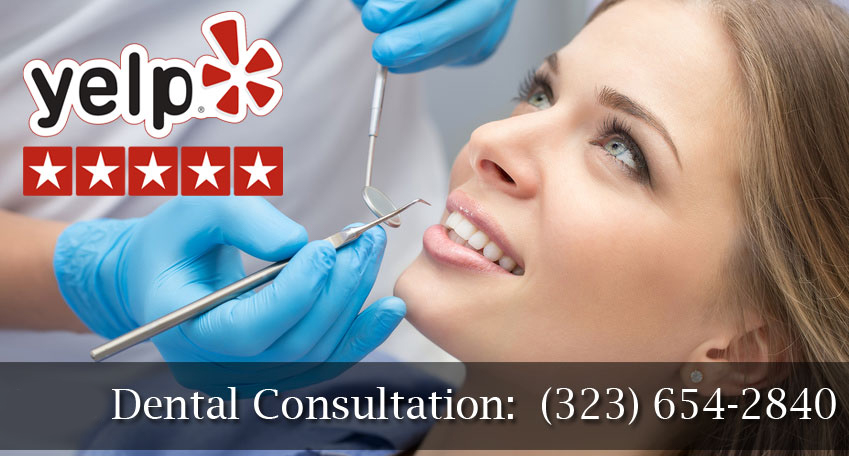A dental crown refers to a cap fixed at the top of your damaged tooth. The crown is aimed at protecting your damaged teeth. In addition, it helps to restore the tooth’s size, shape and appearance. According to Forbes, while some toothaches are temporary and will resolve independently, more severe cases need to be treated by a professional dentist. Therefore, a dental crown offers a solution on how you can protect your tooth from further damage. For instance, permanent crown fixed at West Hollywood Holistic and Cosmetic Dental Care lasts up to or over 15 years. Usually, the lifespan of a dental crown also depends on the materials used and your oral health practices.
On the contrary, while a dental crown is expected to prevent further damage, you may experience pain after crown. However, such tooth crown pain should not last long after your procedure. But if the pain persists, it may point to the formation of a new cavity or tooth decay under crown. All in all, there could be a myriad of reasons why you may experience pain even after your dental crown is in place.
Below are reasons why you may still experience pain after crown.
1. Infections and Traumatized Nerves
While a dental crown can provide a long-term solution in repairing damaged teeth, complications are still bound to arise. Your crown may exert pressure on a shocked nerve. More so, if the procedure for removing your root canal was improper, nerves could be traumatized. Therefore, it may lead to tooth crown pain. If dental crowns are cemented without performing a root canal, the nerves will still be alive. Thus, any pressure exerted by the crown can cause pain after the crown is in place.
Tooth crown pain may also result from infection due to bacteria leakage from tooth decay under crown. Eventually, the nerves get infected, leading to awful dental crown pain. Thereby, it may call for your dental professional to remove the crown to re-do the root canal. Ultimately, the process of putting a dental crown should be done professionally to avoid the attendant costs of removing the crown. Having accumulated a quarter-century of experience, you will never go wrong by consulting with us at West Hollywood and Cosmetic Dental Care.
2. Grinding of Teeth When Asleep
Bruxism is a condition that leads to the grinding of teeth mostly at night when sleeping. Consequently, this exerts tremendous pressure on the crown, thus leading to tooth crown pain. Under extreme cases, the consistent grinding of teeth could cause a crack. Therefore, this exposes the tooth to air, thereby increasing the sensitivity of your teeth to heat or cold. Ultimately, you could experience discomfort or even pain when you take very cold or hot drinks.
3. Incorrect Fitting Crown
Ideally, dental crowns should feel comfortable. Once fixed, your tooth is expected to adjust without much pain. However, if your dental crown is not well aligned, you will feel pain or sensitivity whenever biting. Your tooth pain after the crown could also be due to damage to your older crown and an ill-fitting cap. Typically, an ill-fitting crown is loose and moves around at the top of your tooth. Lastly, if a dental crown sits too high on your tooth, you may experience pain when chewing.
We at West Hollywood Holistic and Cosmetic Dental Care are experts at making adjustments to crown biting surfaces. Feel free to contact one of the dentists if you have crown pain due to chewing or biting.
4. Sore Gums after Crown Procedure
The whole procedure of placing a dental crown is usually simple with no complications. Your gums could be affected at the point of contact with the crown. Consequently, you may feel distressed in the earlier days due to normal irritation and tenderness of the gums. In this case, over-the-counter pain medications will clear the pain. Nevertheless, in case the pain continues past two weeks, you should consult your dentist.
5. A Crown or Tooth Fracture
Even after a dental crown, a fracture or a small crack to your tooth underneath can still occur. Still, the crack or fracture can be on your dental crown itself. Thereby, the crack will expose your tooth to air resulting in an increase in sensitivity to heat and cold. You will feel mild pain at times, but you may have intense pain if the crack is deep into the nerve space. Eventually, you may need to contact your dentist for an appointment for a possible crown fix.
6. Gum line Receding
Receding gums around the crowned tooth could expose part of the tooth root. Consequently, your crowned tooth may begin to have increased sensitivity. Receding of gums could be a result of brushing your teeth with a lot of force. Gums thus become prone to gum infection and plaque buildup. Eventually, this leads to your tooth crown pain.
7. Tooth Decay Under Crown
Just because you have a dental crown is no guarantee you won’t have cavities or tooth decay. Contrary, your tooth beneath the crown is alive. Therefore, it is bound to form a cavity more so where your tooth borders the crown. If the decay causes a cavity deep into the nerve, your tooth can get infected. In addition, poor oral hygiene may lead to plaque accumulation at the margin of the crown and tooth. In the long run, your tooth will decay, leading to tooth pain after crown.
8. Treatment of Dental Crown Pain
Treatment options for dental crown pain range from temporary to more permanent ones. Therefore, the treatment option chosen is determined by the cause of your tooth pain. Some of the treatment solutions to dental crown pain include;
Use Nightguard
A nightguard also called a mouth guard, is particularly important in the treatment of Bruxism. Nightguard acts as a barrier, thereby protecting your teeth against grinding at night. Therefore, it takes the pressure off your dental crown.
Apply Clove Oil
Besides acting as an antiseptic, it causes numbness to your teeth, thereby eliminating tooth crown pain.
Pain and Anti-inflammatory Medication
Over-the-counter medicines like aspirin or ibuprofen can relieve toothache temporarily. Direct application of tooth gels eases the pain on your tooth and gums.
Rinsing the Mouth with Salt Water
Saltwater is known to be a natural disinfectant, thus killing harmful bacteria. It is also known to reduce inflammation. However, the liquid should not be swallowed but used as a mouthwash.
Use of Diluted Hydrogen Peroxide
Hydrogen peroxide diluted with water kills harmful bacteria that could cause toothache.
Garlic and Ginger
Garlic and ginger are used as herbal remedies. They are known to fight bacteria are good pain relievers. They are applied directly to affected teeth.
Concluding Remarks
As seen above, a dental crown is the second popular method of protecting a damaged tooth from filling. The procedure is quite straightforward and expected to be comfortable. However, some issues are bound to occur even when the procedure is done with due care. As a result, there are various remedies in place that provide relief. Ultimately, you should seek professional dental care if your toothache is severe.
Good oral hygiene and routine teeth cleaning is the best way to evade tooth decay. However, if proper hygiene doesn’t prevent tooth decay, feel free to contact us at West Hollywood Holistic and Cosmetic Dental Care. Our professional dentists are over qualified and will conclusively address your tooth pain after crown.





